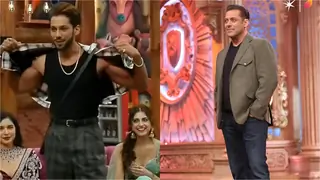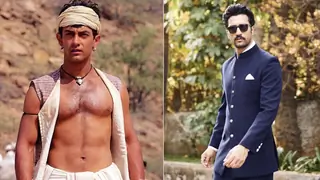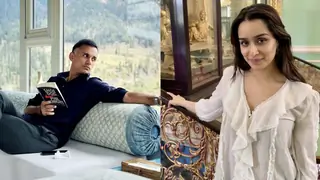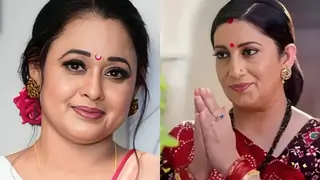Originally posted by: malikakas
I guess what I am getting at is whether male privilege is applicable in every circumstance?
No, it's not, and I completely agree with what you have said in your latest post, that gender can't always be the only motivation for the way people act #intersectionality. In my original post (social advantage vs. biological advantage) I was pointing out one important privilege that Dev had and which neither Dev nor Sona chose to question: Sona iving at his house after marriage. In my opinion, this precipitated a lot of the inequality in their marriage, as they were more answerable to Dev's family than they were to Sona's on a daily basis.
But in Devaskshi's case, the scenario was constructed in a way that Dev and Ishwari ended up wanting that relationship more than Bijoy and Sona. Using that power the Boses were able to leverage a Bengali wedding. They were able to overlook the boy's side traditions of the wedding outfit being given by the groom. They were able to overlook the boy's side being vegetarian. They were even able to negate the boy's side's demands of a prenup. So to a considerable degree, male privilege was negated.
In that instance, yes. And it's kind of a prototype of my biological advantage argument. When you do enjoy the privilege of being male/having a male child, you don't necessarily question it until the issue becomes personal for you, which it did for Dev and Ishwari when Dev almost self-destructed without Sona. But this is where I think your below argument about Sona's (and even Bijoy and Asha's) internalised misogyny is spot on. Once they had that advantage, they didn't choose to use it to gain real equality. The Bengali wedding was more like a gift from Dev to show how grateful he was for their approval and acceptance.
Between Sona and Dev, Sona had a lot more power to exercise choice and question traditional structure. If there was something Sona felt strongly about, her family would've supported her in an unconventional choice (as they clearly have in S2) whereas I don't think Dev had that option.
IRL, I once had a discussion with woman who didn't believe in feminism because, they felt, it invalidated people who make traditional choices. As a result I feel its important, for me, to not invalidate someone's traditional choice (even if I don't like it). So I focus more on whether someone had the power to make a different choice and were empowered enough to do so had they wanted?
In Sona's, case, when Sona convinced Neha to wear Ranveer's lengha, was she doing it from a place of internalized misogyny? Had she fallen victim to patriarchal ideals? Or did she genuinely believe what she was saying? The way Sona is written, it seems to me that she romanized traditional structures because she'd seen a very positive example of her parent's marriage. She could've emphasized that in Bengali culture its the girls side that chooses the wedding outfit.. but she pushed Neha to follow tradition why? So I look at Sona as an empowered woman who chose traditional structures because she believed in it. She's only questioning that structure now with Dev because that ideal failed for her. But we are not watching her question that ideal in general for her brother.
But a lot of what you were discussing earlier Neha questioned. But Neha wasn't an empowered woman so she couldn't act upon personal choices. I'd argue that Neha was a victim of male privilege a lot more.
I miss Neha so much. 😭 And you bring up a really important point. In S1 the juxtaposition of Sona and Neha always spoke volumes. So here we have a disempowered woman, on the one hand, questioning the structure and on the other we have a woman who has all the tools of empowerment but chooses to reproduce nothing more than a slightly tweaked model of patriarchy. At the moment when Dev's privilege was negated by his need for her, Sona had the opportunity to demand a genuinely equal space for herself in his life, but like you said, she *chose* to earn that space instead of demanding it. That is totally internalised misogyny, and that is where I see the fallibility in Sona's character. She wanted something called equality, but she had no clear idea what equality meant to her.
In her mind, it looked exactly like what her parents had, and she tried desperately to recreate that. This is what makes Asha's conversation about Bijoy's fallibility as a husband so important -- for the first time, Sona saw that her parents' marriage was not the model of equality she had always pictured, but that false image already did its damage seven years ago. Like you said, I am nobody to judge women making the choice to enter a traditional marriage, but they should be clear on what they are agreeing to if they enter it willingly. Sona chose to nullify the leverage she had, and restored the Dixit's privilege as ladke-wale when she chose to work for Ishwari's approval as the perfect bahu, and I think she sort of expected to be treated like an executive member of the family as retribution for this sacrifice of privileve.
That is how it works in a patriarchal set up, but it takes years to build the position that Sona wanted to rise to in weeks. I don't know if this makes sense, but it's like Sona wanted her empowerment as an independent woman to accelerate this process. But that is not how it works -- you can't expect an entire system to change because you made sacrifices to embrace it. Either you accept the system and work your way up over decades (like Asha did), or you question it directly and find an alternative that works for you (like Neha tried to do). Sona got stuck in limbo somewhere in between these two.
So I saw this from a different perspective. Dev was not cool with himself for calling Asha "aunty". I feel, he genuinely saw Asha as a maternal figure (in contrast to Ishwari whom he expected himself to worship as God). But again it was guilt and that sense of indebtedness to Ishwari that forced him to stop calling Asha mom. He didn't assume it could go both ways because he knew he wasn't doing something right but also felt he didn't have a choice. For me it was the very opposite of male privilege. For me male privilege would've been demonstrated had he not thought about calling Asha mom to begin with but still expected Sona to do it.
We may have to agree to disagree on the conclusion, though I agree with all of your points. From an emotional perspective, I see that Dev knew he wasn't doing right by Asha, and that his actions came from guilt. But to me, it was telling that he had to have an "aha" moment to realise that Sona felt the same way about her mom that he did about his. I agree that it wasn't a conscious excercise of male privilege, but it was a moment when he had to unlearn it to get to the crux of the issue.
@bold: to me, that is what he effectively did when he suddenly started calling Asha aunty. It perfectly echoed his stance on feminism/equality: he definitely believed in it in name, when everything was going right, but it was dispensible ideology when it encountered opposition from things that were more important. He didn't feel as committed to equality in his marriage as he did to his mother's happiness, and Sona effectively told both him and Ishwari to check their privilege.
ETA: I forgot to add something. Your original post on this topic talked about how Dev's male privilege is being countered by Sona's biological privilege. I thought that was very interesting... because I think the roots of patriarchy stem from female biological privilege to begin with. If you are a male how can you ensure that the offspring is yours? You have to ensure that the female doesn't mate with someone else.
Totally! I thought of this too, and that is why I find it so interesting that the CVs, instead of having Sona confront patriarchy as a lover/wife (which would have been ideal from my perspective), are having her confront it as a mother. She chose to nullify the advantage her love gave her and accepted the system as is, without question. Now she is questioning it, somewhat unintentionally, through her undeniable biological relationship with Soha vs. Dev's biological relationship which is one degree removed (as in, the baby wasn't physically dependent on him, once conceived). That privilege allowed her to keep Soha away from Dev all these years and build success as a parent based on it. Now she feels like she can question Dev's ability to parent while he has no ammo against her because she has been doing it for six years. I am waiting for the day when Dev tells her to check that privilege.
This raises a lot of questions about where the bounds of progressiveness are for this show and others like it. Can we not accept a woman demanding equality as just that? Is that why we needed to have the leap and make Sona a mother, so she was allowed to ask these questions? Is Sona going to go back to calling Dev "aap" if they get married again; does that imply that "tum" is disrespectful coming from a wife? Are we still not at the stage when a Neha, a woman who bitterly rejects patriarchy outright, could be a primary protaginist (I would watch the heck out of that show!)? It says a lot about how deeply our society is still embedded in the idea that a patriarchal model is the only model.



































